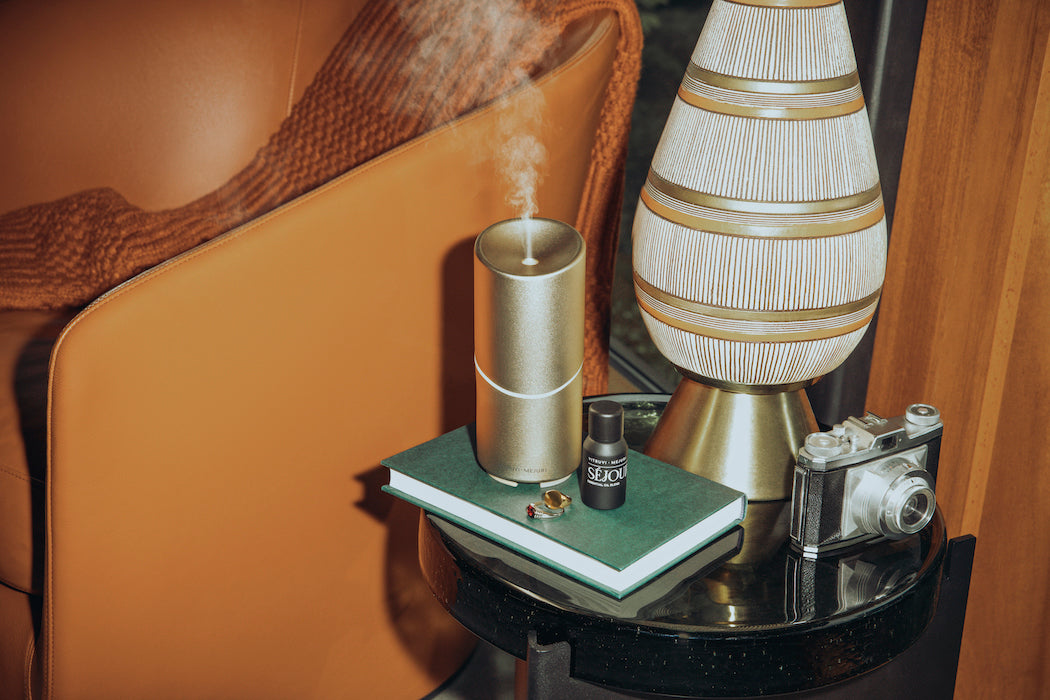Cindy Bokitch is a Vancouver business legend. She’s led teams at (and sparked massive growth for) Starbucks, Lululemon, and Smart Sweets, for starters, and now she brings her talents to vitruvi as company president.
She’s extremely knowledgeable, smart, approachable, and downright cool (no, really: she rides a motorcycle and is very fashionable and knows all the best restaurants in town). Gushing aside, I had the privilege of sitting down with her recently to pick her brain on leadership, failure, and flow.
Thanks for your time, Madam President.
Alright. Shall we?
Yes! How would you like this to go?
We’ll just talk—we’ll just flow.
Oh, my favorite word.
I do want to talk about flow and the idea of being less rigid with your working hours. Can you expand on what it means to you and how you integrate it into your life?
Flow for me means doing things when they are right—when they’re a priority. Yes, there is something about working Monday to Friday, but it’s more: how do I make things work for me, for my team, and for my family? I wasn’t that person, in the early days, missing my kids’ piano recitals or things like that. That just never was me. So I never really had a word for it besides flow. It’s about prioritizing the things that actually fill you up and make a difference. You know, “I have all this other energy now because I just did something that was so great.” I’m super consistent, because you have to be—people need to count on you. So you have to be consistent, but I also feel like people need to live their lives inside of their work.
What does flow look like for you now that your kids are grown up?
It still means supporting them, like moving them to Victoria or moving them to Toronto. They are still a priority. But I’d say my flow has been mixing my work into it more, and I do enjoy it. I enjoy learning and the challenges and all the problems. Problems are good.
I’m on my bike at least twice a week. Yesterday I jumped on my motorcycle for one hour because it was such a beautiful day. And it’s a privilege to be able to do that when you have flow, because I know I’m going to open my laptop at seven o'clock at night. Your mind kind of does this jig: I’m gonna do this, and then I can do that. It’s a soft puzzle that just keeps going.
What kind of bike do you have?
I have a little Suzuki TU250. It was my son’s, and then he gave it to me. I had the tank painted: it was black, and I had it painted this pool-party blue. It’s not anything special, but with this tank, oh, it gets attention.
You said that problems are good. What do you like about solving things for a business?
I like that it’s very operational. And I like it because I like seeing progress. You know that question they ask on those personality tests: do you hate to lose or do you love to win? I love to win. The losing part, whatever. But I really like to see that I can do it. It’s sort of this power in yourself. I don’t mind turning lemons into lemonade. It doesn’t always work; I mean, I think that’s the thing. You can try strategies and of them, maybe eight out of 10 work—if eight out of 10 work, that’s actually really great. But I think it’s really about pushing myself. And then when I see a team come around and actually push this boulder uphill, it’s that proud feeling. I get invigorated by it. “We can do this!” Sometimes you just can’t, but I never give up. I think it’s me seeing myself, and then seeing the team.
What does that process look like to start pushing the boulder up?
There’s a lot of inquiry to even understand what the problem is. And then once that is set, as simple as the problem that we’re solving may be, it’s igniting the team to build a strategy together. And then you set up your by-whens and your check-ins. Communication’s probably the biggest thing: staying in sync.
What are your thoughts on failure?
I think it’s good. I think you have to, because if you don’t then you’re not pushing yourself hard enough, fast enough. If everything’s win, win, win, what could you really be doing if you were failing? I mean, it doesn’t always feel good to fail. You have to sit and look and go, “Did we do everything? Could we have done more? Was it just not the right time?” As long as there’s learning out of it—and that during the failure, people are still respectful. That’s when you develop yourself, right? If you see yourself owning something, just being real with it. I think probably the hardest thing for people to say is, “I failed at that.” Because in school, you never want to tell someone you got a 49. So how do you switch everything you learned as a kid to this idea that it’s actually good to fail? That is really hard. People want to protect their work; they don’t want to tell if something happened. It’s not their fault—it’s kind of the way that we’ve been brought up.
How do you build an environment that allows people to take those risks and not be afraid to fail?
I think you have to have their backs and lead by example. It is easy to say, harder to do. But when there is something, how do you bring the team together and go, “Hey, so we didn’t get this one over the line. What did we learn?” You just keep bringing that to the forefront. And it’s never about one person. “How did we get here together?”
What does leadership look like to you?
Servant leadership is maybe overused, but really, how do you take care of your team and support them and what they need to do? You work for your team. So when I come in, I work for 36 people; 36 people don’t work for me. That’s number one. Being an egoless leader. And clarity, transparency, and real talk.
And there shouldn’t be any leveling. You have to have a leadership team, but then what happens outside a leadership team meeting is everybody together. Are your elbows touching? That’s how I think it should be. And a leader has to have a voice for their team. I always say, with any problem: leadership! Leadership actually means just taking some action.
Totally—anyone can be a leader. Even somebody who is not in a leadership role.
For sure. Take initiative; do things without being asked. That’s what leadership is. And also looking around the corner and going, “Have we thought about this?” It’s about how engaged people are.
What drew you to vitruvi? And what products are you loving right now?
It’s a product I’ve never worked on. And it’s beautiful. I think the world is moving towards this type of beautiful scenting. So I was really attracted to the brand even before I knew who was behind it. And then once you get to know people, it’s a bonus.
Product-wise, I love Cold Plunge Natural Air Freshener Spray. I have a Move Diffuser; it’s black, which really fits well in my extremely black powder room. I’m trying to make it an Austin Powers bathroom. [Writer’s note: told you she was cool.]
Wait. What?
The whole powder room is black; the toilet’s black. I’ll show you pictures.
For blends, I love Grassland. That’s in my Move right now. It’s really fresh; it reminds me of being outside. I also like putting a few drops of Eucalyptus in the shower. Even with the packaging, everything’s beautiful.
This interview has been edited and condensed for clarity.












